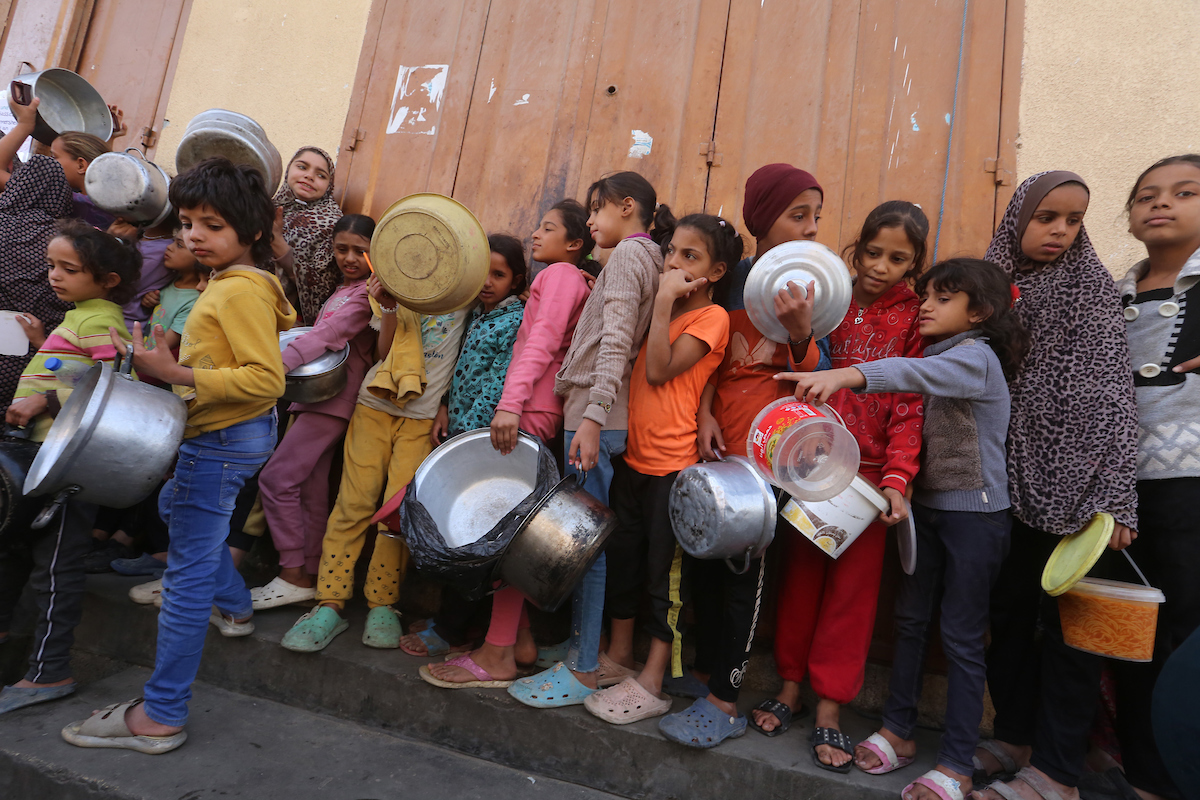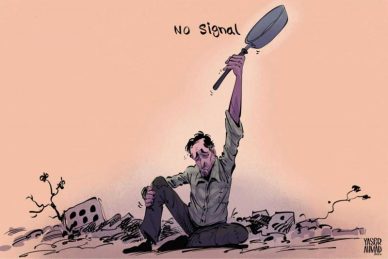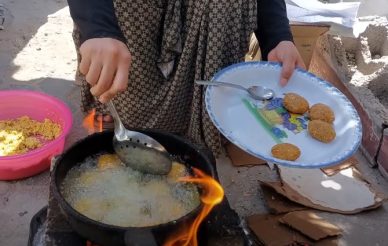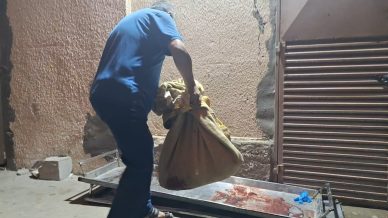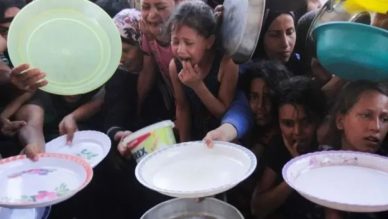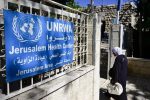GAZA, (PIC)
In front of the Al-Banna bakery in the western area of Deir al-Balah, central Gaza Strip, the scene was harsh and painful. Hundreds of people were crammed outside the bakery doors, hoping to get a loaf of bread, or whatever was available.
While northern Gaza groans under siege and hunger, famine has intensified in recent weeks in the southern areas of the Gaza Strip. Many residents have been forced to eat spoiled flour if they have any left or can manage to obtain it, amid a state of extreme scarcity caused by Israel’s continued blockade of the crossings into Gaza, controlling them and preventing the entry of aid.
The bread crisis
Fayez Quffa, 44, displaced from his home in Gaza City to Deir al-Balah, told our correspondent that he stands outside the bakery for long hours in an attempt to get a loaf of bread or even half a loaf. Yet, he often returns empty-handed, as the number of people crowding the bakery far exceeds the amount of bread being produced.
He adds that the flour in his home has run out, and he is waiting for UNRWA to distribute flour as it usually does, which hasn’t happened. This forces him to wait for hours at the bakery just to feed his children. He also notes that markets lack most food items, vegetables, fruits, and meat, and if any are available, they are sold at exorbitant prices that are beyond the reach of most people.
Scarcity and soaring prices
Residents of southern Gaza complain about the lack of flour, food supplies, and vegetables, as well as the skyrocketing prices of the few goods or vegetables that remain in the markets. Many fear that they are on the brink of a devastating famine, or that it has already begun, similar to what is happening in northern Gaza.
Mahmoud Al-Haddad, 37, complains about the high price of bread. He says he needs about 20 shekels daily just to buy bread, due to the soaring price of flour, which is often spoiled and has a foul odor.
He describes the bread as “infested with weevils, and it smells rotten, but that doesn’t stop us from eating it because we have no other choice.”
He expresses anger at Israel’s attempts to deceive the world into thinking it is allowing aid into Gaza, while in reality, it is not. “It’s not enough that they kill us with bombs and missiles, now they’re killing us with hunger, siege, and deprivation,” he says.
Exorbitant prices for basic goods
According to local sources speaking to our correspondent, the price of flour has skyrocketed, with a 25-kilogram bag now costing around $50, and it’s not even in good condition. The better-quality flour is even more expensive, and a kilogram of bread is sold for 7 shekels in bakeries in southern Gaza, further burdening families already suffering under the constant threat of annihilation.
Empty stalls
As you walk through the markets of Deir al-Balah and Khan Yunis, you see the stalls empty of vegetables and fruits, which have become a dream for most citizens. They also suffer from extreme inflation and a lack of cash flow, worsening the already dire situation.
Since May 7, Israel has continued to control and close the crossings into the Gaza Strip, preventing the travel of the injured and sick for treatment and blocking the entry of humanitarian aid.
Blockade of crossings
The occupation has shut down the crossings since its invasion of Rafah in southern Gaza and its control of the Rafah land crossing and Kerem Shalom crossing, despite warnings from humanitarian and relief organizations and international calls to reopen the crossings to prevent famine due to the lack of aid and to save the lives of thousands of patients and wounded.
The spokesperson for the International Committee of the Red Cross, Hisham Mehanna, stated that the humanitarian situation in Gaza is deteriorating rapidly, noting that the wave of hunger is spreading to include the southern areas of the Strip, not just the north.
Mehanna explained that about 1.8 million people living in the south are suffering from a severe shortage of aid and food baskets, and the population is in desperate need of basic supplies like flour. This requires a halt in fighting to allow the entry of aid for the displaced.
He emphasized that the limited humanitarian aid available in both northern and southern Gaza signals an impending larger humanitarian catastrophe.
He pointed out that the southern region is sheltering a large number of displaced people living in harsh conditions, without access to food, water, healthcare, or personal hygiene items, while prices are rising to unprecedented levels.
A worrying humanitarian situation
In this context, Adnan Abu Hasna, the media advisor for UNRWA, confirmed that the humanitarian situation in Gaza, especially in the south, is extremely dire.
Abu Hasna stressed that the lack of safe and serious aid flows presents a major challenge to the work of humanitarian organizations, including UNRWA, which is facing enormous pressure from displaced civilians.
He added that the humanitarian situation is alarming, especially with the rising levels of unemployment, poverty, and disease, given the restrictions on aid entry.
Abu Hasna called for an end to the war that is targeting civilians, warning that children, women, and the elderly are paying the highest price in these difficult times.

